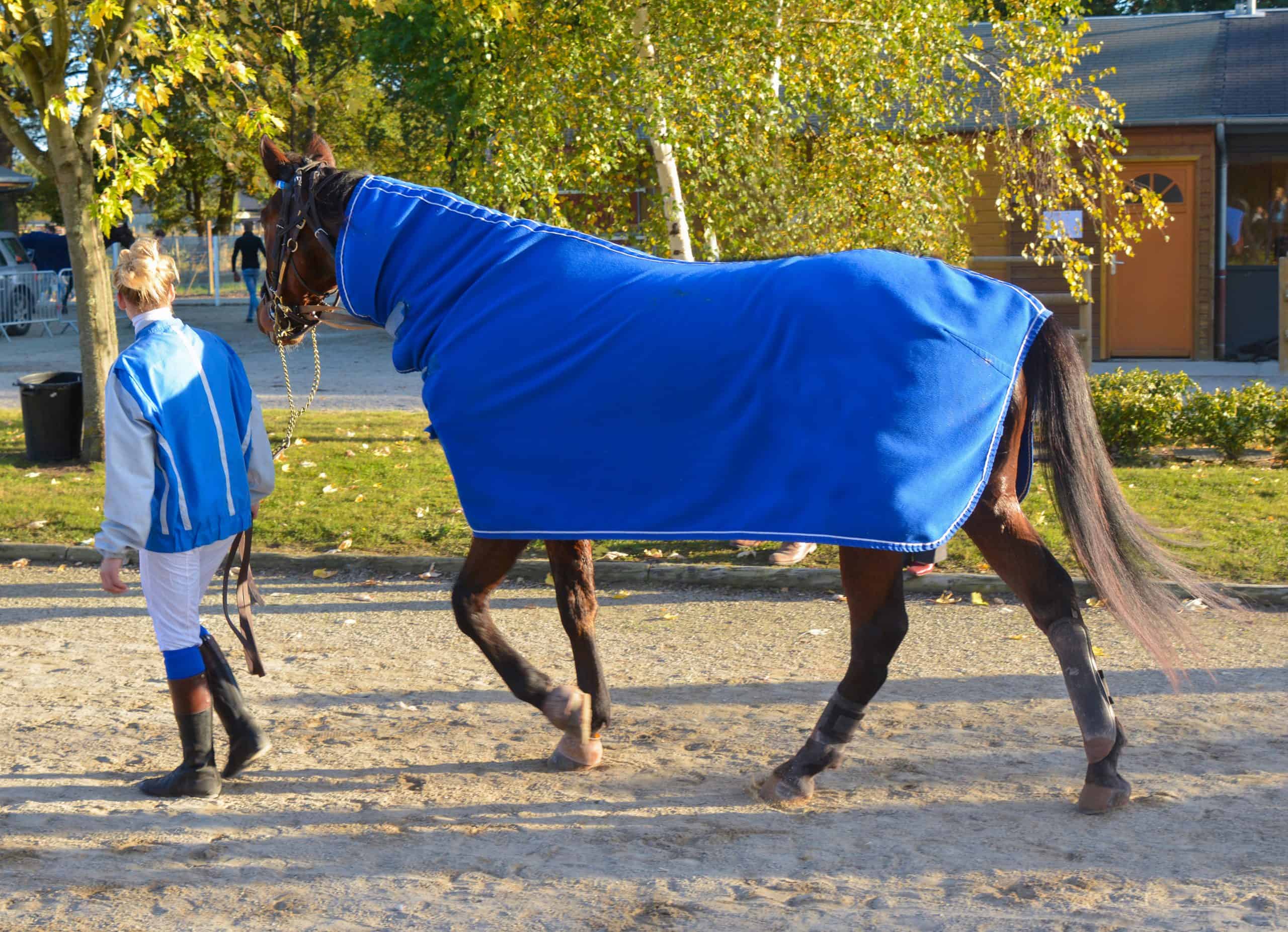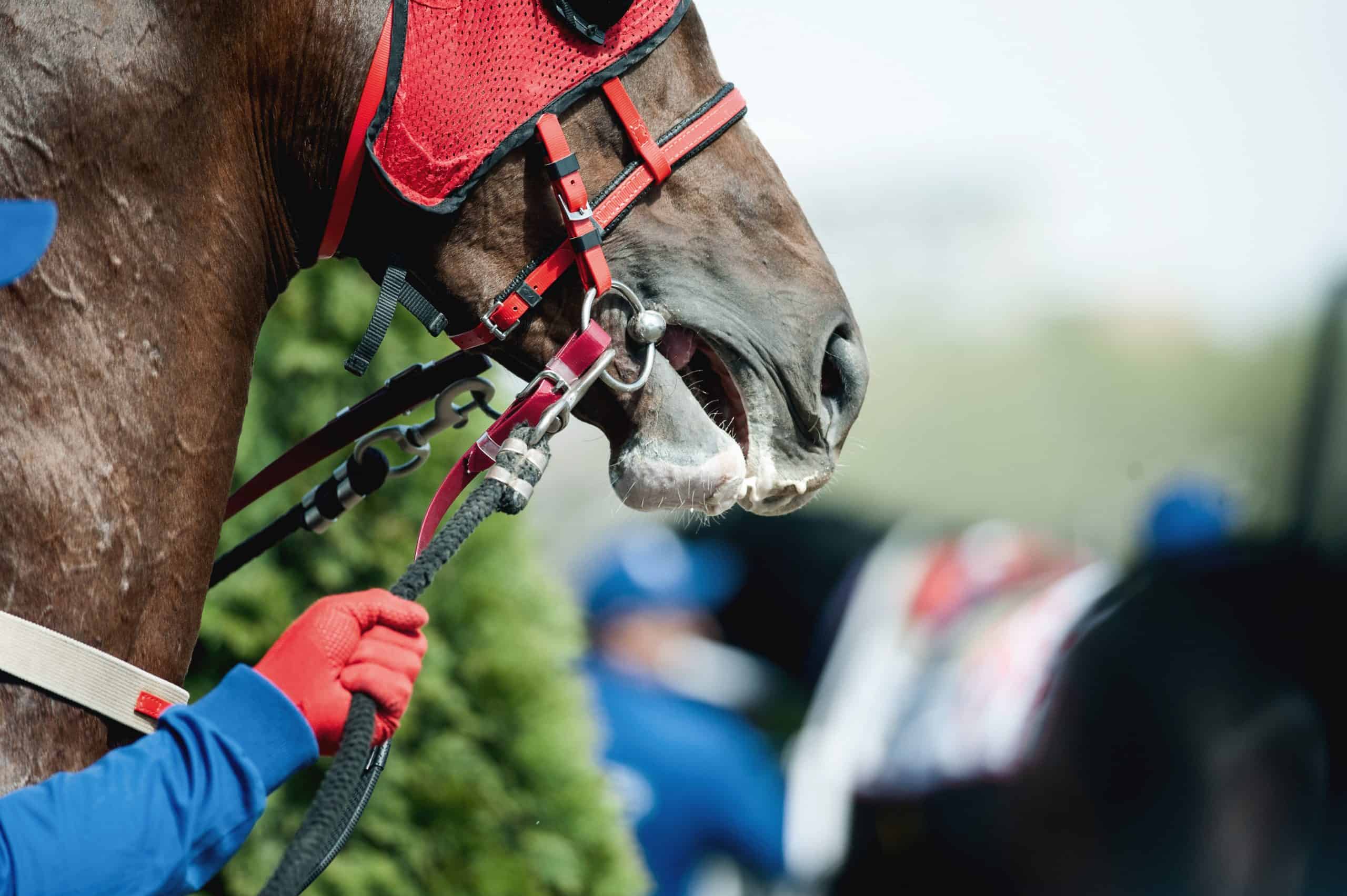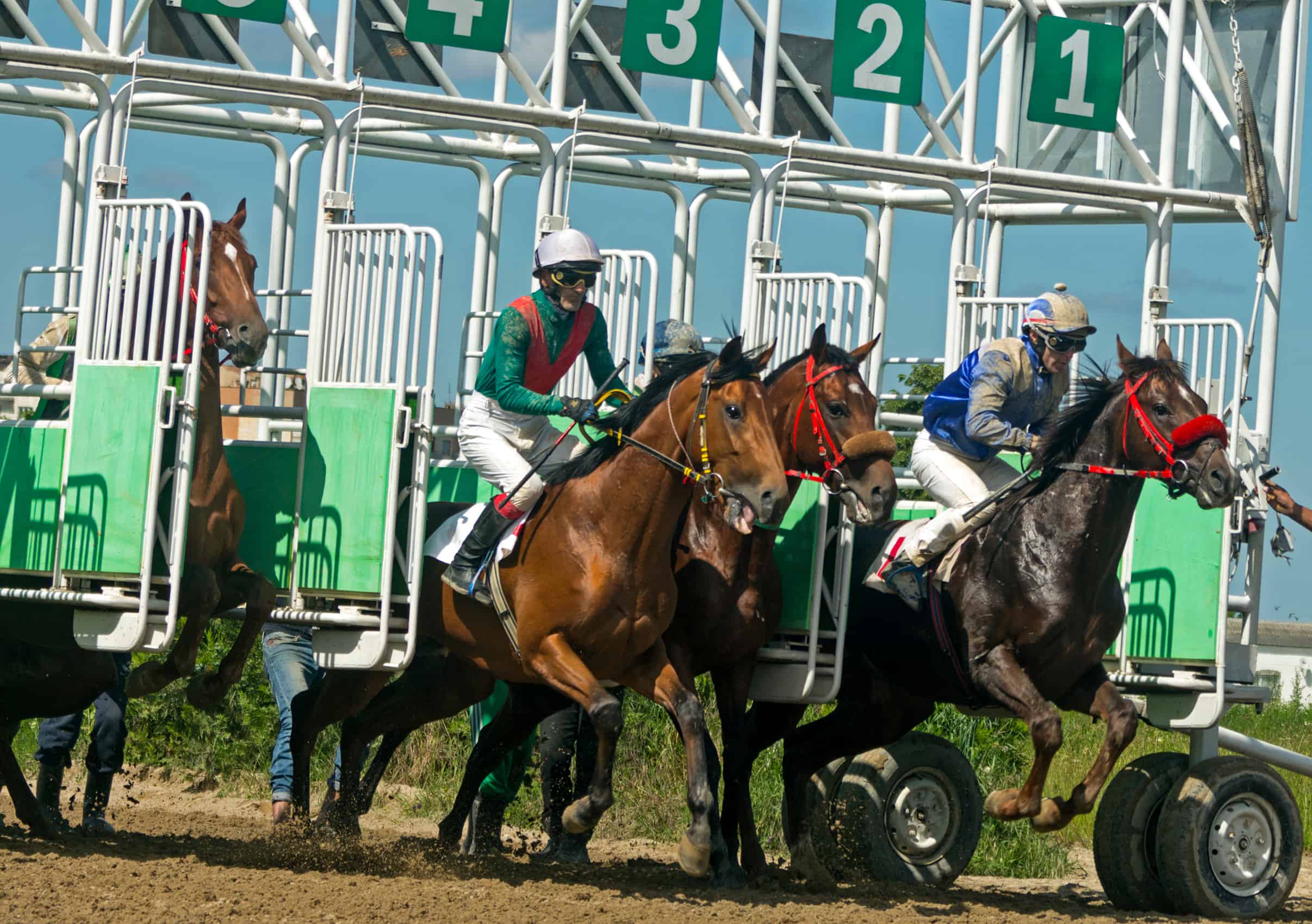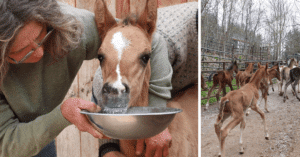While horse racing is far from new, horrific events of the past few years have forced many of us to take a closer look at this long-standing tradition. We've all seen the happy crowds gathered around pristine-looking tracks. We know about the economic advantages of hosting these large events and recognize that the sport provides a long list of jobs. But behind all those big fancy hats and mint juleps, it's hard to deny that horse racing has a darker side. The sport appeals to all kinds of people, but as a community of horse lovers, we have an extra responsibility to ask the question: Is horse racing cruel?
As with any debate, there are two sides to this question. While setting preconceived notions aside, let's look at both viewpoints to create an objective picture of what horse racing really is.
The Economic Advantages
From a purely economic viewpoint, horse tracks and the horse racing industry in general have an important economic impact. Data compiled in 2017 by the American Horse Council Foundation found that out of the four main sectors of the horse industry (recreation, racing, competition, and working horses), racing stimulates the economy the most, and it also provides the most jobs.
Race tracks bring tourism to their small communities, and in some areas, the training and breeding of race horses is the main money-making industry. According to the AHCF data, horse racing provided 472,000 jobs in 2017 including trainers, grooms, jockeys, vets, and general farm workers.
With legal gambling, both offline and online betting is popular at horse racing events and also provides opportunities for individuals to profit. Although, they also run the risk of developing a gambling addiction.
Does Money Matter?
Looking at the numbers, the horse racing industry seems to be a lucrative and advantageous venture. The money is typically the first point race supporters bring up in defense of the sport. And while money will always be something to consider, it doesn't fit in to the most important question—is horse racing cruel.
It's true horse racing has a great effect on the economy. But it takes its greatest toll on the horses themselves. That's where our focus should be as we discuss the potential for animal cruelty within the sport.
How Horses Are Treated
It's impossible to make a blanket statement on how every single race horse is treated. From small town rookies to the biggest names in the sport, there will always be a range of good and bad.
Horse breeder and trainer Larry Smith writes in defense of horse racing saying "racehorses generally have good lives." He even goes as far to say their lives are "idyllic" with people who care for them, well-balanced diets, and exercise they enjoy.
Despite this perfectly painted picture, we can't ignore the uglier, often hidden, side of how racehorses are treated. We know horse people love animals, but greed is a powerful emotion. There are several accounts of horses being pushed to the limits, and even abused, all for the sake of profit.
Race horses are often seen as money-making objects and not living creatures worthy of compassion or respect. Many start racing when they're only two years old, and their bones are still growing. They're pushed to absolute exhaustion, and then they're forced over the edge of what is considered humane treatment of animals.
The Use of Drugs in the Horse Racing Industry
Drugs have always been a prevalent issue when considering if horse racing is cruel. To keep horses on the track, it's common practice for trainers and veterinarians to inject horses with drugs.
One of the most common is called Lasix. This diuretic is used to stop pulmonary bleeding in the lungs during intense exercise. This allows the horse to keep on running even when their body is literally shutting down.
Many veterinarians involved with horse racing support the use of Lasix saying it prevents exercise-induced pulmonary hemorrhage and can save lives. But the fact that this kind of drug is needed is testament to how overworked race horses actually are. If they're being pushed to the point of an exercise-related death, wouldn't it be safer, and more humane, to not push the horse that hard in the first place?
Lasix is only one of the common drugs often injected into racehorses. There is a long list of drugs, and an even longer list of side effects that can lead to death.
The industry has taken steps to regulate and police the use of certain performance-enhancing drugs. Sometimes these regulations work to the horse's advantage. But there's also a lack of enforcement along with rumors of officials accepting bribes to cover up illegal actions that put horses in danger.
Training Methods
When horses are barely two years old, they enter a rigorous training program. Injuries are common, and many horses don't even make it to their first race. But as with treatment of the horses, training will always depend on the human involved. Some training methods are considered acceptable and humane, and others teeter on the edge of abuse and cruelty.
The issue of inhumane horse training is not unique to the horse racing industry. The use of various devices that force horses to perform certain actions is a controversial topic in several other equine disciplines, including dressage and eventing. Unfortunately, the line between abuse and effective training is blurry at best.
Most trainers follow their own moral code. But there are also techniques that have been used for generations that people are only now recognizing as abusive. The horse racing industry is not immune to this problem. Pain and fear are often used as motivators, and at the end of a race, it's hard to tell whether a horse ran fast because they wanted to, or because they were too afraid not to.
The Euthanizations
We can't discuss whether or not horse racing is cruel without taking note of the number of horse deaths. The New York Times reports that nearly 10 race horses died every week at American racetracks in 2018.
That number has always been higher than any horse lover would find acceptable. And since the recent surge of deaths at the famed Santa Anita racetrack, the rest of the world has taken notice. Dozens of horses died for seemingly mysterious reasons within only a few weeks. It triggered an investigation, but it wasn't enough to permanently stop the races.
It's an unfortunately common occurrence for horses to trip or fall during races. In most of these catastrophic accidents, a privacy screen is rolled onto the track, and the horse is euthanized where it fell.
A Racehorse's Future
On track euthanizations aren't the only deaths related to the horse racing industry. Thousands of thoroughbreds are also sent to slaughterhouses each year. Forbes reports that more than 10,000 racehorses are shipped out of the country where they're sold for meat. This happens to yearlings that are judged too slow for continued training, competitors that don't bring in enough prize money, and even retired winners.
BloodHorse reports that even Kentucky Derby winners aren't safe from the slaughterhouse. The 1986 winner and 1987 Horse of the Year, Ferdinand, most likely died at a slaughterhouse in Japan after he failed to be a valuable stud.
Horse Courses by Elaine Heney
- Listening to the Horse - The Documentary by Elaine Heney & Grey Pony Films
- Shoulder In & Out Training for better balance, bend & topline development with your horse
- Over 110+ Polework Exercises & Challenges to Download
- Dancing at Liberty & Creating Connection with Your Horse (11 lessons) - Grey Pony Films
Of course, not every racehorse's career ends in slaughter. Many are adopted into loving families and go on to live happy lives. Others enjoy cushy retirements even after they're used as breeding stock.
After discussing facts and taking into account your personal ethics, what do you think? Is horse racing cruel? Or are the cruelties we see in the media a small representation of an otherwise honorable sport? Should it be banned altogether, or does racing merely need enforced regulations?
We'd love to hear your thoughts in the comments.









